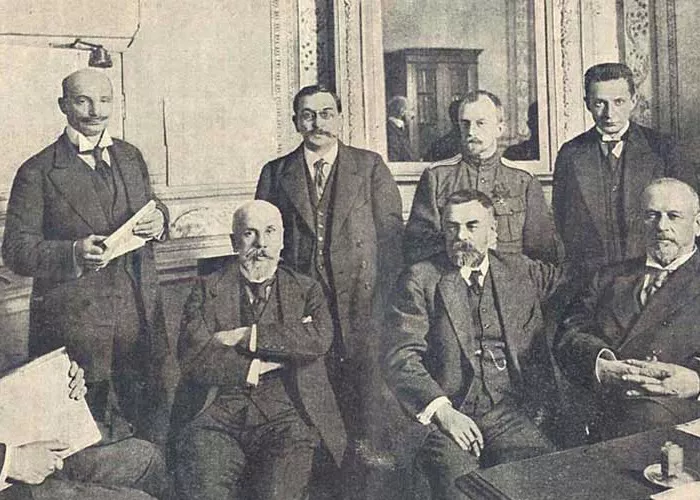December 1 is a significant date in Canadian history, marked by pivotal events that shaped the nation’s identity and governance. This article explores key occurrences on this date, providing detailed accounts of each event while maintaining clarity and simplicity in language.
What Happened on December 1 in Canadian History?
The Transfer of British North America Lands (1869)
On December 1, 1869, a crucial transition occurred when the British North America lands held by the Hudson’s Bay Company (HBC) were officially transferred to Canada. This event was a significant step towards the establishment of Canadian sovereignty over these territories, which included present-day Manitoba and parts of the Northwest Territories/
The transfer was part of a larger process initiated by the Canadian Confederation in 1867, which aimed to incorporate various territories into a unified Canada. The HBC, which had controlled vast areas of land in North America for over two centuries, was facing financial difficulties and pressure from settlers and the Canadian government to cede its lands.
Louis Riel, a prominent Métis leader, played a vital role during this transition. He was deeply concerned about the rights and interests of the Métis people, who were the original inhabitants of the Red River area. On this day, Riel presented his “List of Rights” to a convention representing both English-speaking settlers and the Métis community. This list outlined the demands for fair treatment and representation in the new Canadian governance structure. Riel’s actions were instrumental in ensuring that the voices of the Métis were heard during this transformative period in Canadian history.
Formation of the Provisional Government (1869)
Following the transfer of land, tensions escalated between the Métis and incoming Canadian authorities. By December 8, 1869, Riel had established a provisional government to assert control over the Red River Settlement. This government aimed to negotiate terms with Canada that would protect Métis rights and land claims.
The formation of this provisional government was significant as it marked one of the first instances where indigenous rights were formally recognized in negotiations with colonial powers. It demonstrated Riel’s leadership and commitment to securing a place for Métis culture and governance within Canada. The actions taken during this period laid foundational principles for indigenous rights movements that would follow in later years.
The First Official Proclamation (1870)
On December 1, 1870, Manitoba officially entered Confederation as Canada’s fifth province. This event was celebrated as a victory for both Riel and the Métis people, as it represented their successful negotiation for provincial status within Canada.
The admission of Manitoba came after extensive negotiations that included Riel’s List of Rights. These negotiations ensured that certain provisions were included in the Manitoba Act, such as language rights for French speakers and land rights for Métis families. This act was pivotal because it acknowledged the unique cultural heritage of the Métis within a new provincial framework.
Manitoba’s entry into Confederation set a precedent for how indigenous populations would engage with Canadian governance structures moving forward. It highlighted the importance of negotiation and representation for marginalized communities within Canada.
The Establishment of World AIDS Day (1988)
While not exclusively a Canadian event, December 1 is also recognized globally as World AIDS Day, established in 1988 to raise awareness about HIV/AIDS. In Canada, this day has become an important occasion to reflect on public health policies and support systems for those affected by HIV/AIDS.
In Canada, World AIDS Day serves as a reminder of the ongoing challenges faced by individuals living with HIV/AIDS and highlights efforts made by health organizations to combat stigma and promote education about prevention and treatment options. Various events are held across the country to commemorate this day, emphasizing community involvement and support.
The Launch of Canada’s First National Climate Change Strategy (2016)
On December 1, 2016, Canada unveiled its first national climate change strategy at a time when environmental issues were becoming increasingly pressing on global agendas. This strategy aimed to address climate change through collaborative efforts between federal, provincial, and territorial governments.
The strategy included commitments to reduce greenhouse gas emissions significantly by transitioning to renewable energy sources and enhancing public transportation systems. It also emphasized partnerships with indigenous communities to ensure their voices were included in environmental decision-making processes.
This initiative marked a turning point in Canada’s approach to environmental issues. It underscored a commitment not only to addressing climate change but also to fostering sustainable practices that future generations could benefit from.
Conclusion
December 1 has been marked by significant events in Canadian history that highlight themes of governance, rights recognition, public health awareness, and environmental responsibility. From Louis Riel’s advocacy for Métis rights during the transfer of HBC lands to contemporary efforts addressing climate change and public health issues like HIV/AIDS, each event reflects Canada’s evolving identity as a nation that values diversity and inclusivity.These historical milestones remind us that while Canada has made substantial progress over time, ongoing dialogue about rights—whether they pertain to indigenous peoples or public health—is essential for fostering an equitable society moving forward. As we reflect on these events each year on December 1, we are reminded of our collective responsibility to ensure that all voices are heard within our national narrative.
Related Topics:

